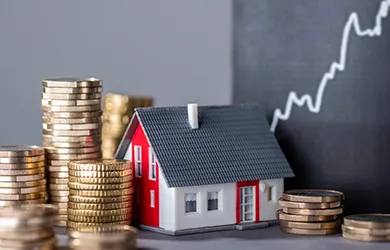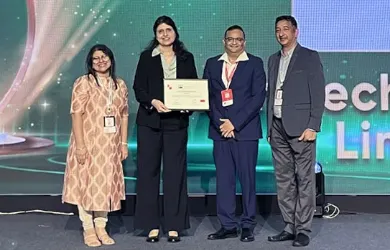- Our Story
- Our Impact
-
Our Projects
Commercial
- Careers
New GST rates - Explained
By Lodha
March 08, 2019The Goods and Services Tax (GST) has been a significant tax reform in India, streamlining the indirect taxation system and promoting a unified market. Over the years, the GST rates have undergone revisions to align with economic conditions, sectoral requirements and the evolving needs of businesses and consumers.
Understanding the GST Structure
The GST system in India is structured into various tax slabs, including 0%, 5%, 12%, 18%, and 28%. These slabs categorize goods and services based on their nature, essentiality and tax impact. The GST rates are subject to periodic revisions by the GST Council, which comprises representatives from the central and state governments.
What Is The Current GST Rate?
The Goods and Services Tax Council had previously announced a reduction in the tax on under-construction houses to 5% (without input tax credit) from 12% earlier. Affordable housing GST is of 1% while non affordable housing GST rate is of 5%
To get the 1 % GST rate on flats, at least 80% of the raw material has to be procured from the registered dealer. Otherwise, the developer is liable to pay the GST of 18% under RCM.
What Is Affordable Housing?
Affordable housing comprises homes with a carpet area of up to 60 square meters (approx. 645 square feet) in metro cities** and 90 square meters (approx. 960 square feet) in non-metro cities. Homes with a value up to INR 45,00,000/- in both, metro and non-metro cities) are considered affordable housing. Affordable housing GST is 1% (without input tax credit). This means that the GST one pays while purchasing a particular property cannot be claimed as a deduction from their income.
In India, the affordable housing tax benefits incentivize homeownership and make it more accessible. Individuals purchasing affordable housing can avail of tax deductions on the interest paid on home loans under Section 24(b) of the Income Tax Act, with a maximum deduction of Rs. 2 lahks per year. Additionally, a separate deduction of up to Rs. 1.5 lakh per year is available under Section 80EEA for first-time homebuyers of affordable houses. These tax benefits aim to reduce the financial burden on homebuyers and promote affordable housing options for a wider
section of the population.
**Metro cities are Bengaluru, Chennai, Delhi NCR (limited to Delhi, Noida, Greater Noida, Ghaziabad, Gurgaon, Faridabad), Hyderabad, Kolkata and Mumbai (whole of MMR).
What is Non-Affordable Housing?
Non-affordable housing in India refers to upscale residential properties that are priced beyond the reach of a large segment of the population. These luxurious homes, designed with high-end features and located in prime areas, target affluent individuals and investors who can afford the premium price tags. Non-affordable housing offers a lavish living experience, superior amenities, and a prestigious address, catering to those seeking opulence and exclusivity. Non-affordable housing GST rate is 5% (without input tax credit).
GST On Government Housing Schemes
The new regime states that only a 1% GST will be imposed on government housing projects that aim to provide affordable housing for the general public. This applies to large-scale housing initiatives such as the Jawaharlal Nehru National Urban Renewal Mission, the Rajiv Awas Yojana, the Pradhan Mantri Awas Yojana, as well as similar programs run by state governments
GST On Stamp Duty
In India, the Goods and Services Tax (GST) does not apply to stamp duty as it is a separate tax levied by the state government. Stamp duty is a fee paid by individuals for the registration of property transactions, such as sale deeds, lease agreements or mortgage documents. It is governed by state laws and rates vary across different states. Since stamp duty is not considered a supply of goods or services under the GST regime, it is not subject to GST.
Are These Rates Mandatory?
The GST Council confirmed in 2019 that in the case of an ongoing project, developers and builders can opt to either charge the GST as per the old rates with an input tax credit, or the new rates without the input tax credit.
From When Has This Been Effective?
This rule has been in effect since 1st April 2019.
Lodha: Building A Better Life, The Right Way
Guided by our vision of 'Building a Better Life' for all our residents, we at Lodha follow transparent and ethical business practices. We have strict anti-corruption, anti-bribery and anti-money laundering policies that are binding for all our associates, contractors, suppliers, subsidiaries, affiliates and sub-contractors. We have adherence to social, ethical and responsible practices in any business dealings, by way of multiple checkpoints and processes in place. Any suspected instance of policy violation is deftly investigated and appropriate disciplinary action, including suspension and termination of service or initiation of civil and/or criminal proceedings, is undertaken. Coupled with our commitment to nurturing an environment that enables growth and fulfils ambition for all our stakeholders and consumer trust in the brand; Lodha is India's leading realty player.
Frequently Asked Questions
1. What is non-affordable housing under GST?
Non-affordable housing under GST refers to residential properties that are priced beyond the affordability range and do not qualify for lower GST rates applicable to affordable housing. Non-affordable housing GST rate is 5%.
2. Who is eligible for affordable housing in India?
Individuals belonging to economically weaker sections (EWS), low-income groups (LIG), and middle-income groups (MIG) are eligible for affordable housing in India.
3. What are the tax benefits of the affordable housing scheme?
The affordable housing tax benefits scheme in India include deductions on home loan interest under Section 24(b) and additional deductions under Section 80EEA for first-time homebuyers.
4. Is GST exempt from Pradhan Mantri Awas Yojana?
The new regime states that only a 1% GST will be imposed on government housing projects like Pradhan Mantri Awas Yojana (PMAY).
5. What is the GST rate on flat purchases in 2023?
The GST rate on flat purchases in 2023 is 5% (non-affordable housing) and 1% (affordable housing) for under-construction residential properties, without input tax credit (ITC). Please note: GST on flat purchases is not applicable if you buy a property in already completed projects.
6. Is GST applicable for resale flats?
No, GST is not applicable for resale flats as it is applicable only on under-construction properties.
7. Who will pay GST builder or buyer?
The buyer is responsible for paying the GST on under-construction properties purchased from the builder.
8. Is there a GST on Stamp Duty?
No, GST is not charged on stamp duty as it is a separate state-levied tax.
You may also like





 Enquire
Enquire
 Call
Call
 chat
chat





